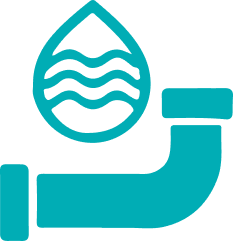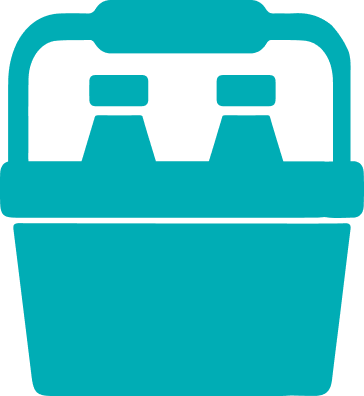Compliance Testing for Mold
Adhering to Federal and State Regulations
Compliance testing for mold is crucial to ensure adherence to environmental regulations, protect public health, and avoid legal or financial penalties.

Mold Regulations
NJ and NY laws require strict mold testing for safe environments.

Compliance Testing
Ensures health, safety, and regulatory standards.
"*" indicates required fields
Why is Mold Compliance Testing Important?
Meet Regulatory Requirements
Federal, NJ, and NY state laws require mold inspections and testing in certain situations, such as tenant complaints, real estate transactions, and workplace safety compliance.
Protect Public Health
Mold exposure can cause significant health risks, including respiratory issues, allergies, and infections. Compliance testing ensures indoor air and surfaces are free of hazardous mold levels.
Avoid Legal and Financial Penalties
Non-compliance with mold regulations can lead to fines, lawsuits, or loss of licensure. Testing ensures you remain in compliance and mitigate risks.
Support Remediation Efforts
Compliance testing confirms that mold remediation was effective and that the property is safe for occupants, meeting all regulatory standards.
Federal Mold Regulations

Occupational Safety and Health Administration (OSHA)
OSHA sets permissible exposure limits (PELs) for indoor air quality and requires employers to address mold in workplaces under the General Duty Clause.

Environmental Protection Agency (EPA)
The EPA offers mold remediation guidelines and emphasizes compliance with air quality standards under the Clean Air Act when addressing mold-related indoor air pollution.

Centers for Disease Control and Prevention (CDC)
Although not a regulatory body, the CDC provides recommendations for mold cleanup and prevention, often referenced in compliance standards.
New Jersey Mold Inspection and Remediation Certification Act
Requires mold inspectors and remediation contractors to be licensed by the state. Compliance testing is critical to ensure projects adhere to these certifications.
Landlord-Tenant Regulations
Mold is considered a habitability issue under NJ law. Property owners must address mold complaints promptly and provide testing results upon request.
School and Public Building Standards
Public institutions are required to meet indoor air quality regulations, including mold testing, to ensure the safety of students and employees.
New York State Mold Program
Mandates licensing for mold assessment and remediation professionals. Compliance testing ensures work meets NY state standards under Article 32 of the New York Labor Law.
Tenant Protection Regulations
NY law requires landlords to address mold as part of their obligation to provide habitable living conditions. Testing is often necessary to confirm compliance.
Local Laws (e.g., NYC Local Law 55)
In New York City, Local Law 55 requires landlords to inspect for and remediate mold in residential buildings with three or more units.
When is Mold Compliance Testing Required?
When responding to tenant complaints or lawsuits.
In workplaces to comply with OSHA and state-specific safety laws.
During real estate transactions to ensure the property is free of mold contamination.
In public institutions, such as schools or hospitals, to ensure a safe environment.
After mold remediation to confirm the work meets legal standards.

Benefits of Compliance Testing for Mold

Legal Protection
Avoid lawsuits and penalties by adhering to federal and state regulations.

Health and Safety
Protect occupants from the health risks associated with mold exposure.

Reputation Management
Demonstrate your commitment to a safe, compliant property.

Regulatory Documentation
Provide detailed reports for audits, inspections, or legal proceedings.
Reliable Water and Air Quality Testing Services
Protect your environment with our specialized water and air quality testing solutions, offering comprehensive analysis to detect contaminants, convenient sample collection, and on-site testing for immediate results. Contact us today to schedule a consultation or on-site visit and take the first step toward a healthier, safer environment!
Frequently Asked Questions
Is mold compliance testing mandatory?
Yes, mold compliance testing is mandatory in specific cases, such as after mold remediation, in real estate transactions, or when required by NJ and NY state laws. It ensures you meet regulatory standards and avoid penalties.
What regulations apply to mold compliance in New Jersey and New York?
In New Jersey, the Mold Inspection and Remediation Certification Act requires licensed professionals to conduct mold assessments and remediation. In New York, Article 32 of the New York Labor Law and NYC Local Law 55 set specific requirements for mold inspection and remediation, particularly in rental and public buildings.
How does mold compliance testing benefit property owners?
Compliance testing protects property owners by ensuring adherence to regulations, preventing legal issues, and providing documentation for audits, inspections, or tenant disputes.
What is included in a compliance testing report?
The report includes findings from visual inspections, air and surface sampling results, moisture data, and recommendations to address or prevent mold growth. It also confirms whether the property meets regulatory standards.
Request a Test or Consultation
Your Environment, Our Priority – Fill out the form below, and our team will get back to you as soon as possible.
"*" indicates required fields





